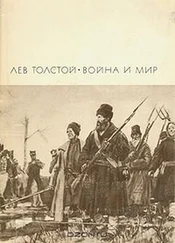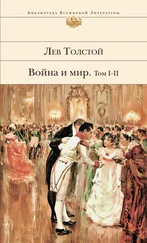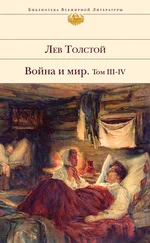| BOOK ONE: 1805 |
Лев Николаевич Толстой ВОЙНА И МИР Том 1 |
| CHAPTER I |
ЧАСТЬ ПЕРВАЯ |
| "Well, Prince, so Genoa and Lucca are now just family estates of the Buonapartes. |
I - Еh bien, mon prince. Gènes et Lucques ne sont plus que des apanages, des поместья, de la famille Buonaparte. |
| But I warn you, if you don't tell me that this means war, if you still try to defend the infamies and horrors perpetrated by that Antichrist-I really believe he is Antichrist-I will have nothing more to do with you and you are no longer my friend, no longer my 'faithful slave,' as you call yourself! |
Non, je vous préviens, que si vous ne me dites pas, que nous avons la guerre, si vous vous permettez encore de pallier toutes les infamies, toutes les atrocités de cet Antichrist (ma parole, j'y crois) - je ne vous connais plus, vous n'êtes plus mon ami, vous n'êtes plus мой верный раб, comme vous dites. [Ну, что, князь, Генуа и Лукка стали не больше, как поместьями фамилии Бонапарте. |
| But how do you do? |
Нет, я вас предупреждаю, если вы мне не скажете, что у нас война, если вы еще позволите себе защищать все гадости, все ужасы этого Антихриста (право, я верю, что он Антихрист) - я вас больше не знаю, вы уж не друг мой, вы уж не мой верный раб, как вы говорите.] Ну, здравствуйте, здравствуйте. |
| I see I have frightened you-sit down and tell me all the news." |
Je vois que je vous fais peur, [Я вижу, что я вас пугаю,] садитесь и рассказывайте. |
| It was in July, 1805, and the speaker was the well-known Anna Pavlovna Scherer, maid of honor and favorite of the Empress Marya Fedorovna. With these words she greeted Prince Vasili Kuragin, a man of high rank and importance, who was the first to arrive at her reception. |
Так говорила в июле 1805 года известная Анна Павловна Шерер, фрейлина и приближенная императрицы Марии Феодоровны, встречая важного и чиновного князя Василия, первого приехавшего на ее вечер. |
| Anna Pavlovna had had a cough for some days. She was, as she said, suffering from la grippe; grippe being then a new word in St. Petersburg, used only by the elite. |
Анна Павловна кашляла несколько дней, у нее был грипп , как она говорила (грипп был тогда новое слово, употреблявшееся только редкими). |
| All her invitations without exception, written in French, and delivered by a scarlet-liveried footman that morning, ran as follows: |
В записочках, разосланных утром с красным лакеем, было написано без различия во всех: |
| "If you have nothing better to do, Count (or Prince), and if the prospect of spending an evening with a poor invalid is not too terrible, I shall be very charmed to see you tonight between 7 and 10-Annette Scherer." |
"Si vous n'avez rien de mieux à faire, M. le comte (или mon prince), et si la perspective de passer la soirée chez une pauvre malade ne vous effraye pas trop, je serai charm?e de vous voir chez moi entre 7 et 10 heures. Annette Scherer". |
| "Heavens! what a virulent attack!" replied the prince, not in the least disconcerted by this reception. |
[Если y вас, граф (или князь), нет в виду ничего лучшего и если перспектива вечера у бедной больной не слишком вас пугает, то я буду очень рада видеть вас нынче у себя между семью и десятью часами. |
| He had just entered, wearing an embroidered court uniform, knee breeches, and shoes, and had stars on his breast and a serene expression on his flat face. |
Анна Шерер.] -Dieu, quelle virulente sortie [О! какое жестокое нападение!] - отвечал, нисколько не смутясь такою встречей, вошедший князь, в придворном, шитом мундире, в чулках, башмаках, при звездах, с светлым выражением плоского лица. |
| He spoke in that refined French in which our grandfathers not only spoke but thought, and with the gentle, patronizing intonation natural to a man of importance who had grown old in society and at court. |
Он говорил на том изысканном французском языке, на котором не только говорили, но и думали наши деды, и с теми тихими, покровительственными интонациями, которые свойственны состаревшемуся в свете и при дворе значительному человеку. |
| He went up to Anna Pavlovna, kissed her hand, presenting to her his bald, scented, and shining head, and complacently seated himself on the sofa. |
Он подошел к Анне Павловне, поцеловал ее руку, подставив ей свою надушенную и сияющую лысину, и покойно уселся на диване. |
| "First of all, dear friend, tell me how you are. Set your friend's mind at rest," said he without altering his tone, beneath the politeness and affected sympathy of which indifference and even irony could be discerned. |
- Avant tout dites moi, comment vous allez, ch?re amie? [Прежде всего скажите, как ваше здоровье?] Успокойте друга, - сказал он, не изменяя голоса и тоном, в котором из-за приличия и участия просвечивало равнодушие и даже насмешка. |
| "Can one be well while suffering morally? |
-Как можно быть здоровой... когда нравственно страдаешь? |
| Can one be calm in times like these if one has any feeling?" said Anna Pavlovna. "You are staying the whole evening, I hope?" |
Разве можно оставаться спокойною в наше время, когда есть у человека чувство? - сказала Анна Павловна. - Вы весь вечер у меня, надеюсь? |
| "And the fete at the English ambassador's? |
- А праздник английского посланника? |
| Today is Wednesday. |
Нынче середа. |
| I must put in an appearance there," said the prince. "My daughter is coming for me to take me there." |
Мне надо показаться там, - сказал князь. - Дочь заедет за мной и повезет меня. |
| "I thought today's fete had been canceled. |
- Я думала, что нынешний праздник отменен. |
| I confess all these festivities and fireworks are becoming wearisome." |
Je vous avoue que toutes ces f?tes et tous ces feux d'artifice commencent ? devenir insipides. [Признаюсь, все эти праздники и фейерверки становятся несносны.] |



